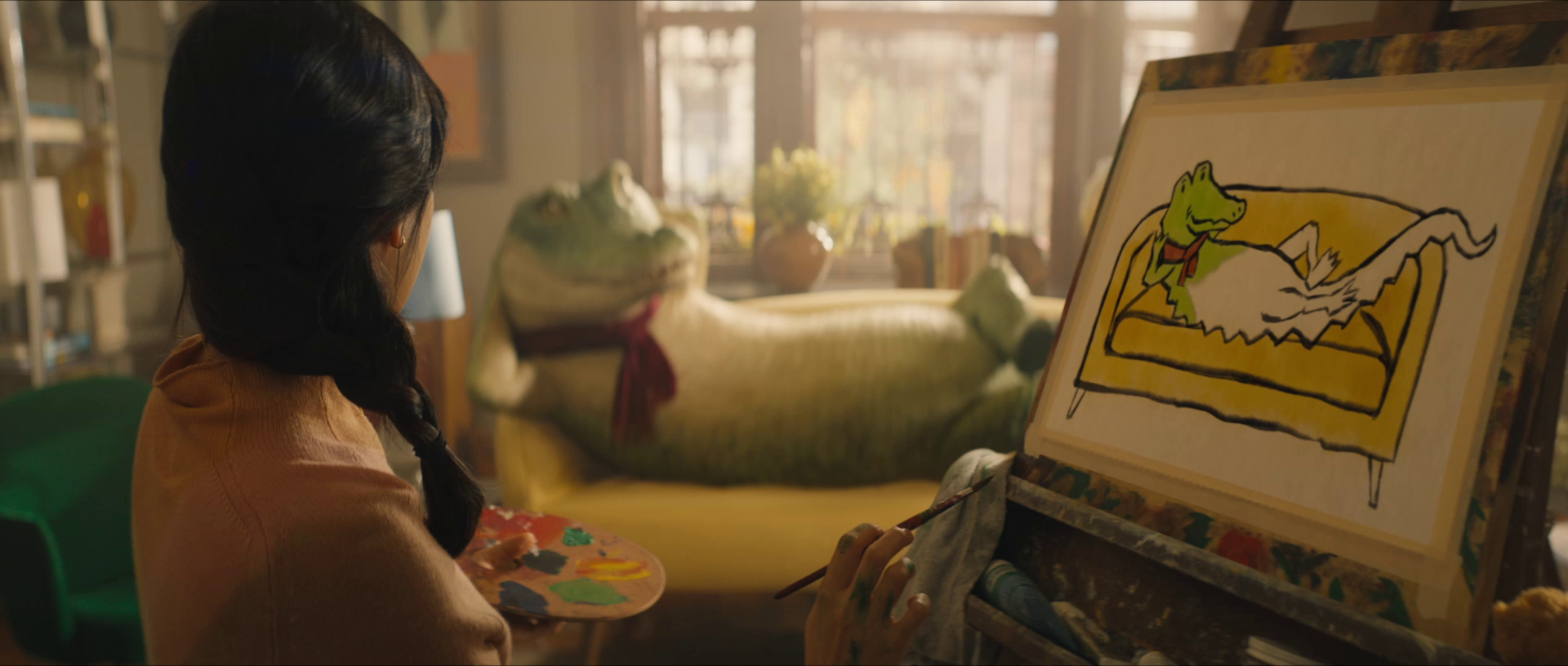Celebrating a director’s return to a specific genre/medium/subject that helped them catapult into success is a glorious thing, doubly so when they managed to make their comeback film good! Henry Sellick (“Coraline,” “The Nightmare Before Christmas”) returns to the world of macabre stop-motion animation with his latest adventure “Wendell and Wild”, which he’s co-written with Jordan Peele (“Nope,” “Get Out”) and based on his and horror writer Clay McLeod Chapman’s unpublished book. With years spent on production and full creative control, Sellick’s latest returns to the high quality expected from his works.
The film follows thirteen-year-old orphan Kat Elliot, voiced by Lyric Ross (“This is Us”), who decides to summon a pair of demon brothers, the titular Wendell and Wild, voiced by Keegan-Michael Key (“Keanu,” “Schmigadoon!”) and Peele respectively. She must also contend with the mysterious Sister Helley, voiced by Angela Bassett (“9-1-1,” “Black Panther”), Father Bests, voiced by James Hong (“Everything Everywhere All At Once,” “Kung Fu Panda”), and her new friend Raúl, voiced by Sam Zelaya, while Wendell and Wild must deal with their father Buffalo Belzer, voiced by Ving Rhames (“Lilo & Stitch,” “Mission Impossible”).
As Sellick’s return to the realm of stop-motion and directing in general after several projects failed to find a start, there’s something exceptionally cathartic here. He’s gone on record stating how he wants the film to look like the medium, not hiding the seams in characters’ face pieces and purposefully lowering the frame rate at certain moments. The result is a film that, more than any stop motion piece of entertainment over the past two decades, feels like watching puppets come to life.
The way everything moves and contorts, twisting into macabre versions of real-life items or movements, is nothing short of spectacular. From the twisted theme park of Buffalo Belzer to the different textures and various goops seen throughout the tale, this is a film that simply doesn’t feel or look like any other, even the ones that share the same medium. Despite the themes of death or the inanimate objects being articulated, the big thing this film has to its advantage is just a lifelike quality that sweeps you up.
Even if it’s animated in a great way, part of that liveliness comes from the voice cast. Ross is a great protagonist, imbuing Kat with a spunk and spirit that makes her an instant favorite. She’s a delight to watch throughout the entire film and helps stamp this adventure with a clear sense of identity. Key and Peele are also great, managing to move the two demonic brothers beyond just animated versions of themselves. There’s a great back and forth on display and their relationship is honest and believable. Bassett is also a highlight, making Helley an incredibly likable character and one who’s easy to connect with. Rhames and Hong are also standouts, and Zelaya, in his film debut, is so easy to fall in love with as Raúl.
If there’s one thing you can confidently say about Sellick’s films is that they’re never short of ambition. “Wendell and Wild” might be about a young girl trying to control a pair of demon brothers, but its also about guilt, family, art, the prison complex system, and religion. There’s a lot going on here, and it results in a movie that feels a bit overstuffed with ideas. Each get time to develop, but never to the same degree. The film’s central idea, focusing on the evils of profit prisons, is well developed and makes sense in the main plot, but the others don’t get nearly as much focus. Even beyond that though, the emotional core of the film is so incredibly well done that an overstuffed nature doesn’t matter, as it always comes back to the emotions of the characters and their arcs.
Musically backing Sellick up is composer Bruno Coulais (“Wolfwalkers,” “The Secret of Kells”), who Sellick previously worked with on “Coraline.” His score here is just as excellent as it was on that film, blending a great sense of creepy, atmospheric tunes without losing any playfulness you’d expect from an animated adventure like this. Building out the film’s musical identity though is its mixtape of various songs that play throughout. The works of X-Ray Spex, Ibeyi, The Specials, and Fishbone come spilling out of Kat’s boombox at multiple occasions and they help to build the film’s unique tone and emotional state.
While not reaching the heights of his career, “Wendell and Wild” is still an absolutely delightful film that shows how skilled Sellick is at this craft. With a great voice cast and an emotionally satisfying, if overstuffed, plot, it’s a wonderful time. Here’s hoping it doesn’t take another ten years for Sellick’s next movie to get made. 4.5/5
















